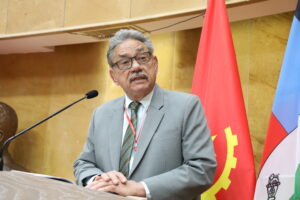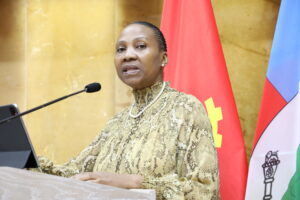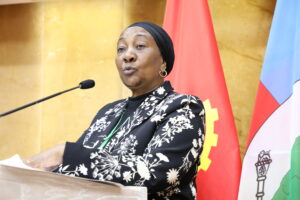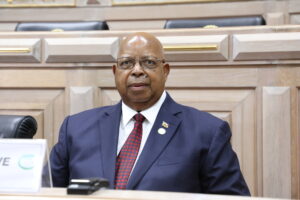With the insurgency reappearing in areas under SAMIM’s responsibility, observers fear the terrorist activities will get a second lease of life.
Kelvin Jakachira
The efficacy of the Southern African Development Community (SADC) intervention force, SADC Mission in Mozambique (SAMIM), deployed in Mozambique’s northern province of Cabo Delgado has come under the spotlight amid reports that remnants of the jihadist insurgency in the province have resurged in areas under SAMIM’s responsibility.
Increasing terrorist activities
Reports from Cabo Delgado suggest the terrorists are launching coordinated deadly attacks on military and civilian targets. The insurgents, known as Ansar al-Sunnah wal Jama’a, are campaigning for an Islamic State. Recently, their terrorist activities have intensified in many parts of the province, including their capturing strategic territories on the Macomia district coast, which is within SAMIM’s area of operation.
On Sunday 11 February 2024, for example, the insurgents attacked an area between Macomia and Pemba, killing one civilian and burning vehicles. They also intercepted a bus and extorted money from passengers. According to sources on the ground, insurgents have become so emboldened that between the 8th and the 9th of February they went into Macomia villages to preach openly and conduct prayer sessions.
In the first week of February this year, the group of terrorists had strangely moved more than 200 kilometres from Macomia to Mecufi in just a few days, surprising observers who questioned how they were able to cover such a long distance in a short period.
More reports indicated that, on Friday 9 February, the terrorists killed between 20 to 25 members of the Mozambican Armed Forces in the Mucojo administrative post in Macomia district after overpowering a military post. The attack was confirmed by the Macomia district administrator, Tomás Badae. The jihadists also boasted about beheading a soldier after several hours of interrogation.
Again on 9 February, media reports from Cab Delgado suggested that the militants set up barricades on a main highway (known as N380) between Macomia and Quissanga, in a village called Nangororo, where they temporarily blocked traffic on this key road. It deserves noting that both Macomia and Quissanga are under the SAMIM’s areas of operation.
Further reports from Cabo Delgado show that on 11 February 2024 the insurgents reportedly beheaded two civilians in Metuge district, less than 30km from Pemba, Cabo Delgado’s capital city. These Islamic State insurgents claimed responsibility for the killing of one of the victims. It is also believed that many people were kidnapped during this operation.
Despite these escalating cases of violence in its areas of responsibility, SAMIM is set to end in July 2024 and has not yet provided an assessment of its activities in the province since its deployment in July 2021. While there are reports suggesting that the SADC mission could shelve its withdrawal as a result of these attacks, Rwanda has indicated that, should the need arise, it could expand its own mission to Mozambique in order to fill the lingering security void.
Pre-SAMIM efforts at curbing the terrorist insurgency
The SAMIM deployed forces from Angola, Botswana, Lesotho, Tanzania, Namibia and South Africa in July 2021 to help Mozambique neutralise the insurgency.
The Mozambican government was criticised for initially downplaying the threat and delaying SADC’s intervention as the insurgency grew in scope and sophistication.
Faced with the weakness of its army, Mozambique had previously tried to secure external support by hiring private military companies. Maputo initially turned to the Russian-based Wagner Group in September 2019. But the Group failed to subdue the terrorists, reportedly lost a lot of their officers and equipment, and, as a result, withdrew after three months.
Maputo then turned to another mercenary group, the Dyck Advisory Group, based in South Africa, to combat the insurgents. However, the Dyck Advisor Group also failed to reverse the tide of the insurgency, resulting in its withdrawal.
It was the intervention of Rwanda that turned the tide against the terrorists and neutralised them, resulting in the territory that they had captured from the Mozambican security forces being returned to state authority. Since then, over 250,000 internally displaced people have returned to their homes to resume everyday life.
Related articles
Will South Africa aid and abet genocidal pogroms in DRC?
Is South Africa ready to take huge losses in the DRC?
But with the insurgency reappearing in areas under SAMIM’s responsibility, observers fear the terrorists will get a second lease of life and begin mobilising new recruits.

The resurging terrorist insurgency in Cabo Delgado
Initially, when the militants overran the territory in Cabo Delgado, they were welcomed and embraced by local populations who felt abandoned and marginalised by the central government in Maputo and saw the militants’ actions as ‘independence’ from an insensitive government that would not let them enjoy the dividends of newly found natural resources.
However, the brutality and the devastation unleashed by the Ansar al-Sunnah wal Jama’a militants quickly undermined any sympathy by community members, ensuring that they lose any form of support from the civilian population in the captured territories.
The jihadist terrorists had set up their headquarters in Cabo Delgado’s provincial capital, the port city of Mocimba da Praia, where they were killing civilians and security personnel, in some cases using brute methods such as beheading. Non-Governmental Organisations estimate that over 6,000 civilians have been killed, while some 850,000 people, including 400,000 children, have been displaced since 2017.
Then entered the Rwanda Security Forces (which comprises forces from the Rwanda Defence Forces and the Rwanda National Police) on 21 July 2021, a week after the deployment of the SADC intervention forces.
The Rwanda crack force dislodged the terrorists from Mocimba da Praia, Palma and Ancuabe. After being dislodged from these areas, the remnants of the terrorist group coalesced in the Macomia district, which is under SAMIM’s area of operation. They have been hiding in an area called Caputa Forest, from where they are now emerging to carry out sporadic but deadly attacks, reportedly killing scores of soldiers from the Mozambican army and from SAMIM. These remnants are now believed to be numbering between 200 and 250 militants.
Mozambique’s Defence Forces Commander, Major General Tiago Alberto Nampele, told reporters in Mocimboa da Praia in December 2023 that they would soon launch an offensive to rid the area of any insurgents.
“What we are planning to do is how we can begin an offensive attack, and at this time, we have elaborated a plan with Rwanda forces,” Major General Nampele said.
“We are actually informed that the enemy is located in the forests of Catupa, where they are in small groups.”
When SAMIM’s intervention started in July 2021, it was praised as an encouraging and critical development, as the bloc had never addressed regional insecurity with such a vigorous commitment. However, in light of recent developments, there are now growing fears that the terror group is gaining some breathing space under the nose of the SADC intervention force.
“SADC forces are not very effective as the terrorists are regrouping in Catupa Forest,” said one Mozambican journalist who has covered the insurgency and has requested anonymity adding that the “SADC forces are slow.”
In recent times, the group’s attacks have become bolder and more frequent. Media reports from Cabo Delgado are showing a gloomy picture in the SAMIM areas of operation. The Mozambican government has not disputed the media reports of a sharp increase in the activities of the terrorists in SAMIM areas of responsibility.
Observers are wondering whether the SADC mission in Mozambique might be regarded as successful, given the brief capture of the Macomia coastline, which is under SAMIM’s area of coverage. – Pan African Review
KELVIN JAKACHIRA

Kelvin Jakachira is an independent journalist based in Harare, Zimbabwe. He writes in his personal capacity. This article first appeared in the Pan African Review.












